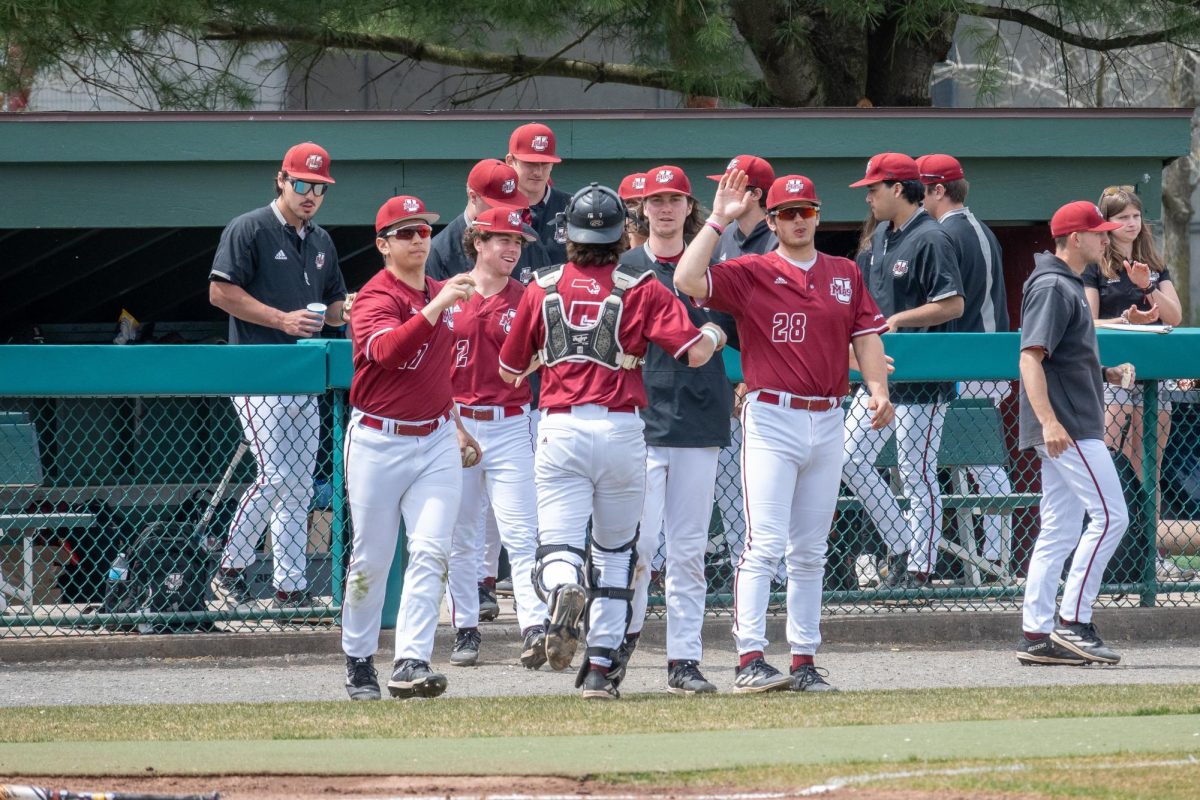
The University of Massachusetts hosted a screening of the biographical documentary “Rebel Citizen” in the Flavin Family Auditorium in the Isenberg School of Management last Wednesday evening. Part of the 23rd Annual Massachusetts Multicultural Film Festival, the film’s director (and UMass alumna) Pamela Yates and producer Paco de Onis were present for a Q&A following the showing.
“Rebel Citizen” focuses on the life work of iconic cinematographer, documentary filmmaker and human rights advocate Haskell Wexler – making it an obvious fit for this year’s festival theme: films about film. Mostly known for his politically charged documentaries, Wexler’s career spans over 50 years and includes involvement in a variety of well-recognized productions including “Medium Cool,” “Who’s Afraid of Virginia Woolf?” and “One Flew Over the Cuckoo’s Nest.”
The event began promptly with introductions from film professors and festival curators Catherine Portuges and Daniel Pope who welcomed the attendees – a mix of students, faculty and members of the public.
“You don’t usually see Haskell Wexler’s name on its own,” Pope said. “Normally, you hear ‘two-time Oscar-winning cinematographer Haskell Wexler.’”
Pope offered insight and context to Wexler’s story. He shared that at age 17, Wexler orchestrated a workers’ strike at his own father’s factory, proving how uncompromising he was as an advocate for the people. “Rebel Citizen” puts most of its focus on his political documentary work and the process of filming.
“(It’s) a testament to Wexler’s work as a documentary filmmaker and also to his life,” Pope said of Yates’ documentary.
Much of the film, in fact, was of Wexler’s interview footage – an intimate space shared by him and the viewer. The camera centered on the subject – sometimes zoomed in to focus on his face, other times framing his entire torso. A television showing Wexler’s films played continuously in the background filling the space over his left shoulder.
Pope also talked about the “rule of thirds,” noting that Yates’ framing of Haskell in interviews breaks the cardinal filmmaking rule by centering the subject, but that the effect adds “remarkable depth to this otherwise direct and uncluttered style.”
The film was structured around Wexler’s commentary – which was provoked by Yates’ interview questions – with clips of his films intermittently injected to illustrate his style and process. Wexler, who, in the archival footage, always seemed to have a pipe in his mouth, described his influences and regular mishaps that occurred while filming. The elderly cinematographer – in his early 90s at the time – spoke with quick wit, modern relevance, passion and sarcasm, and employed a fair amount of vulgarity. He discussed a wide range of human conflicts from the Vietnam War to Ferguson.
Wexler never lost touch with current political problems. When asked, Yates confirmed that if he were alive (Wexler passed away in December 2015), he would likely be making a film about Donald Trump and the effects of his campaign. In the last months of his life, she said, Wexler wrote a series of open letters to Bernie Sanders with campaign instructions and advice. Yates expressed a hope of publishing the letters in the near future.
“Rebel Citizen” highlighted the lengths Wexler would go to complete a project. This included filming subjects in a mirror to protect their identity and stalking the Honduras-Nicaraguan border (with Yates) in the early 1980s to infiltrate the Contra rebel forces funded by the CIA.
After the screening, Yates and de Onis sat before the audience with a strong energy and eagerness to answer questions. Yates described Wexler as a friend and mentor for over 35 years, making her the perfect person to conduct his interviews for the film.
“I really don’t think anybody but (Yates) could have made this film,” said de Onis. “He had absolute trust in (her).”
During the Q&A, Yates offered a bit of her personal background. She grew up in a Pennsylvania coal-mining town where she said the currency was storytelling. After a few years spent working as a photojournalist, Yates enrolled at UMass at age 21. She then graduated in three years as a BDIC major combining film studies and political science.
Yates also described the profound effect her mentor had on her documentary work.
“Both his attention to artistry of cinema as well as to telling a good story are central to the way I approach documentary filmmaking,” she said. She emphasized the importance of passion in storytelling.
“The thing that made Haskell live to be 93 was that he would wake up every morning and be really angry at the injustice in the world,” said Yates.
The Massachusetts Multicultural Film Festival continues next Wednesday with a screening of “The Go-Go Boys” at 7:30 p.m. in the Flavin Family Auditorium.
Yelena Rasic can be reached at [email protected].


















